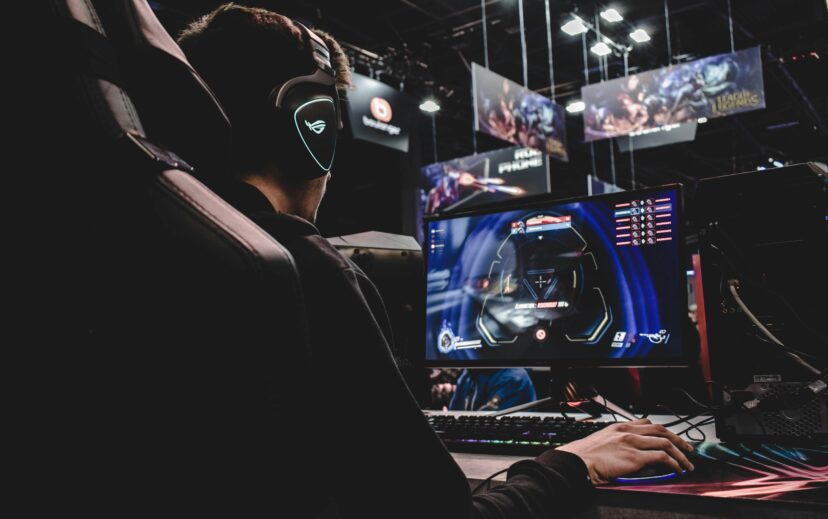The Olympic Games have long symbolized the pinnacle of global athletic excellence, but with the recent announcement of the Olympic Esports Games, the International Olympic Committee (IOC) is signaling a new era, one that embraces the digital age and recognizes the legitimacy of competitive video gaming on a world stage.
This evolution carries both opportunity and complexity for stakeholders in the entertainment and sports industries.
From Pole Vault to Pixel Battles
Recent Olympic cycles have already seen the introduction of non-traditional events like sport climbing and breaking. Now, the IOC has made its boldest move yet by greenlighting the Olympic Esports Games, which will be a standalone competition launching in 2025 and hosted in Saudi Arabia through a 12-year agreement.
This move reflects the IOC’s acknowledgment that sports and digital culture are converging. With over 3 billion gamers globally and a professional ecosystem rivaling traditional sports in both viewership and sponsorship, esports are not a passing trend — they have proven to be a cultural force.
The Legal Gameboard: IP, Governance & Inclusion
1. Who Owns the Field?
Unlike traditional sports, esports are governed not by neutral federations but by game publishers who own the intellectual property. Games like League of Legends, Call of Duty, or FIFA cannot be featured without publisher consent, creating a unique layer of IP negotiations that are not present in the traditional Olympic disciplines. These relationships must be formalized through licensing agreements — raising questions around control, monetization, and longevity.
2. The Governance Gap
Under the Olympic Charter, official recognition of a sport requires an international federation. Esports currently lack a unified global body. Instead, fragmented rule-making and tournament structures are dictated by individual game publishers — a model that clashes with the IOC’s traditional governance frameworks. Without standardization, issues like doping, match-fixing, and player eligibility could remain inconsistently addressed. However, the International Esports Federation, the current host of the World Esports Championship, can potentially fill this gap and make for a seamless transition.
3. Which Games Make the Cut?
There’s no easy answer. The IOC must balance popularity, competitive integrity, and Olympic values — particularly when it comes to games that feature violent content. First-person shooters, among the most-watched esports titles, may face scrutiny under the IOC’s standards, which exclude “killer games” perceived to promote violence or discrimination.
Yet, the boundaries are blurry. If boxing — a combat sport with real-world physical consequences — fits within Olympic ideals, could a tactical shooter like Valorant or Counter-Strike be adapted to meet similar standards?
Esports: A “Sport” or Something Else?
Critics continue to question whether esports qualify as “real” sports, given their minimal physical demands. But that critique overlooks other Olympic-recognized disciplines like shooting, archery, or even chess and bridge, which emphasize strategy, focus, and fine motor skills over brute strength or endurance.
The reality is that elite esports players train just as rigorously as traditional athletes — often logging 10+ hours a day on mechanical skills, in-game strategy, and physical wellness to maintain peak performance. Reaction times, team coordination, and split-second decision-making are not just “gaming skills” — they are hallmarks of high-performance competition.
Opportunity for Stakeholders
For game publishers, inclusion in the Olympic Esports Games brings global visibility, credibility, and the chance to enter untapped markets. For teams and players, it offers a new level of legitimacy — perhaps even national funding or sponsorships previously reserved for Olympic athletes.
For brands and broadcasters, the IOC’s entry into esports unlocks new audiences and revenue streams, especially as the competition aims to promote gender equity and engage younger viewers worldwide. The Games also offer a new framework for public-private partnerships, where tech platforms and Olympic committees collaborate to shape the future of sports.
What Comes Next?
Work is already underway to finalize the list of game titles, determine qualification pathways, and identify host cities. A six-member panel co-led by IOC officials and Saudi leadership will shape the vision. But several open questions remain:
- How will the IOC ensure fair representation across genres?
- Will national Olympic committees support esports teams with the same enthusiasm as track and field?
- Can the Olympic Esports Games maintain competitive integrity without compromising entertainment?
- What mechanisms will be used to resolve disputes between publishers, federations, and athletes?
Conclusion
The creation of the Olympic Esports Games is more than a cultural milestone — it’s a legal, commercial, and strategic inflection point. As esports continue to break barriers, legal professionals, investors, and entertainment executives will need to navigate new terrain around IP rights, international regulation, and athlete protections.
At our firm, we’re keeping a close eye on this evolution — not just as attorneys with experience in video game and sports law, but as advocates for an industry that’s redefining what it means to be a competitor.
Contact us today to stay ahead of regulatory developments, safeguard your rights, and strategically position your brand in the global esports ecosystem.
Contributions to this blog by Kennedy McKinney.


